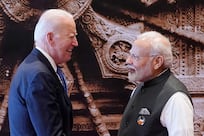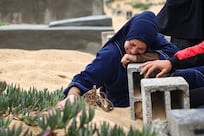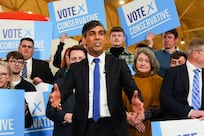Tonight, when Argentina square up against Germany in the World Cup final, it will bring to a close what has been widely regarded as one of the best tournaments ever. It has been a month of football that has produced both high drama and low blows.
Who could forget the spectacle of Brazilians weeping, on and off the pitch, as the national team exited the tournament, losing 7-1 to Germany, the biggest World Cup defeat in their illustrious history? Who, too, could forget the sight of Luis Suarez, Uruguay’s star player, blatantly sinking his teeth into the shoulder of Italy’s Giorgio Chiellini? Both will be debated long after the stadiums have fallen silent.
In Brazil, a wider point will also be debated. The World Cup in South Africa four years ago left the country with facilities that remain underused. The same occurred in Beijing, which hosted the Olympics in 2008. Despite the immense popularity of football in Brazil, and despite some stadiums being used in two years time when Rio de Janeiro hosts the Olympics, it is likely that they will eventually become white elephants. The stadium in Manaus, the Amazonian city that hosted four games this summer, has a capacity of more than 40,000 and no local football team with enough support to get close to filling it. At least three other cities face similar issues after the conclusion of the World Cup.
Moreover, the cost of building the stadiums and related infrastructure has been enormous – at least $9bn, with some estimates pushing it as high as $14bn. Many have argued such a vast sum could be better spent in a country with crumbling schools and hospitals – and with 20 per cent living below the poverty line. The cost has not just been economic. There has been a considerable social cost. Thousands, perhaps tens of thousands, of families were moved out of slums around Rio in preparation for the games. Many were not compensated. Brazilians were furious: there was considerable social upheaval in the run-up to the tournament, with protests drawing up to 100,000 people.
The fans who travelled to Brazil will forget all of this: the colour, the drama and the sheer excitement of being in a dynamic country bathed in sunshine will remain in their memory.
But Brazilians will not forget. The sting of their team’s humiliation against Germany will fade, but the mortgaging of their future to a sporting competition will remain. With the country’s president Dilma Rousseff up for election in October, she could well pay a heavy political price for the heavy financial cost of the World Cup.




